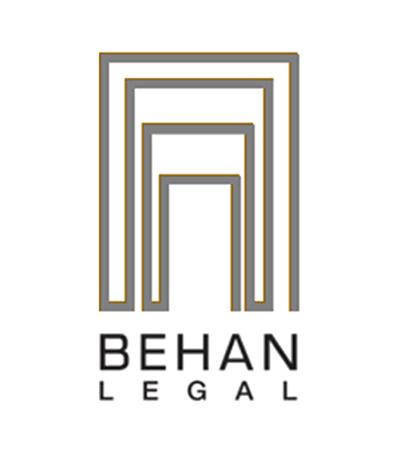- HOME
- About
- Our Team
- Resources
- Anti-Corruption
- Anti-Money Laundering & Counter Terrorism
- DEFACTO (DOMESTIC) RELATIONSHIPS
- LAND RICH DUTY
- LAND TAX IMPLICATIONS ON TRUSTS & ESTATES
- PAYROLL TAX GROUPING
- REAL ESTATE (PROPERTY) NOMINATION & NOVATION
- STAMP DUTY UNDER THE DUTIES ACT 2001 (VIC)
- TRANSFER FROM INDIVIDUALS TO COMPANIES
- STAMP DUTY & TAX CONCESSIONS FOR REAL ESTATE
- SPAM ACT
- ELECTRONIC PROTECTION
- NURSING HOMES & HOSTELS
- RETIREMENT VILLAGES
- DEBT RECOVERY
- COPYRIGHT & LICENSING
- Business & Corporate Succession
- BUSINESS & CORPORATE SURVIVAL AFTER DEATH
- BUY-SELL AGREEMENTS
- RETAIL LEASES ACT 2003
- DIRECTORS PERSONAL LIABILITY & TRUSTS
- SHAREHOLDERS & UNITHOLDERS RIGHTS
- DIRECTORS DUTIES & RESPONSIBILITIES
- CLERP9-AUDIT REFORM & CORPORATE DISCLOSURE
- ACCOUNTANTS & LEGAL PROFESSIONAL PRIVILEGE
- DIRECTORS & SHAREHOLDERS RIGHTS & OBLIGATIONS
- CORPORATE FAULT AND RESPONSIBILITY
- CORPORATE ASSESSMENT
- EXECUTION OF COMPANY DOCUMENTS
- RELIEF FOR OPPRESSION PREJUDICE OR DISCRIMINATION
- INITIAL PUBLIC OFFERINGS
- Asset & Wealth Protection
- EMPLOYMENT LAW & INDUSTRIAL RELATIONS
- ENVIRONMENTAL & CLIMATE
- EQUAL OPPORTUNITY
- ESTATE PLANNING, WILLS, & PROBATE
- STRATEGIC TESTAMENTARY TRUSTS
- SURVIVAL OF THE SMARTEST BUSINESS OWNER
- SIGNING & EXECUTING YOUR WILL
- TESTAMENTARY TRUSTS & GEARING
- WHEN SHOULD I MAKE A NEW WILL?
- WILLS & TESTAMENTARY TRUSTS
- THE LAWYER'S ROLE IN DECEASED ESTATES
- WEALTH (ASSET) PROTECTION & ESTATE PLANS
- ESTATE PLANNER
- ESTATE PLANNING CONSIDERATIONS
- ESTATE & SUCCESSION PLANNING APPRAISAL
- WILL YOU HAVE THE LAST WORD? (SHORT VERSION)
- CONSEQUENCES OF NOT MAKING A WILL (CASE HISTORY)
- EXECUTOR'S COMMISSION
- LEGAL ISSUES REGARDING WILLS & INTESTACY
- TESTATOR'S CONSIDERATIONS FOR PREPARING A WILL
- EXECUTORS' RIGHTS & OBLIGATIONS
- HAVING THE LAST WORD...
- FAMILY & MATRIMONIAL LAW
- Franchising
- BEHAN LEGAL GUIDE FOR THE FRANCHISOR
- GOVERNMENT GRANTS & SUBSIDIES
- LITIGATION
- LAND TAX
- IMMIGRATION & BUSINESS MIGRATION
- GUARDIANSHIP & ADMINISTRATION
- POWERS OF ATTORNEY
- PERSONAL PROPERTY SECURITIES ACT
- REAL ESTATE & CONVEYANCING
- REAL ESTATE AGENTS BE AWARE
- HERITAGE LAWS & IMPACT ON BUYING & SELLING
- VENDOR DISCLOSURE STATEMENT
- REAL ESTATE & CONVEYANCING TERMS & DEFINITIONS
- MOVING OUT CHECKLIST
- DUE DILIGENCE WHEN INVESTING IN PROPERTY
- OWNER BUILDER REPORTS
- NEVER ASSUME A CONTRACT IS STANDARD
- LIABILITY OF PROPERTY OWNERS & LANDLORDS
- OWNERS CORPORATION
- INVESTMENTS IN COMMERCIAL REAL ESTATE PROPERTY
- TAXATION
- SUPERANNUATION & PENSION FUNDS
- TRADE PRACTICES & FAIR TRADING
- TRADEMARKS & INTELLECTUAL PROPERTY
- TRUSTS
- TRADING TERMS & CONDITIONS
- Services and Referral
- International Services
- Client Briefings
- Contact Us
Real Estate & Conveyancing Terms & Definitions
Adjustment The method of adjusting the purchase price of a property to allow for outgoings that have been paid in advance or are owing at settlement
Amendment A change to a law that already exists
Asset Any item of monetary value owned by a person
Attestation clause A phrase that guarantees the validity of the signature of the person that signed it. For example, in a will there is a statement that the will has been validly signed
Attorney The person named in a power of attorney to make certain legal decisions on behalf of another person
Auction Method of selling property so the highest bidder buys the property
Bankruptcy When a person cannot pay debts and a court appoints a trustee to oversee the financial affairs
Body Corporate Controlling body in a strata title
By-law Laws passed by a council
Capacity The mental ability a person must have to carry out legally one's affairs For example, the capacity to make a will requires one to be mentally competent
Caveat An alert placed on a title that tells the Titles Office someone besides the registered owner claims an interest in the property
Certificate of Title Document in the Titles Office that describes details of the ownership and location of a property
Company A legal structure used in business. Companies must be registered and have “Pty Ltd” or “Limited” at the end of their name
Constructive Title A trust where there is no formal document. For example, a court can find that a constructive trust exists when it decides that de facto partners had a mutual intention to give an interest in a property to the partner not named as legal owner on the title
Contract Note A Contract Note is similar to a proper contract of sale property, but it is shorter. It is used in private property sales
Contract of Sale The document you sign when you buy a property. Sometimes there is a cooling-off period.
Conveyancing A term often used to describe the buying and selling of a property.
Cooling-off period The number of days allowed to a buyer to get out of the contract without any reason. For example, if a property is bought in a private sale, the cooling-off period is 3 clear business days after the contract is signed.
Covenant A covenant is like a promise that must be kept by each new buyer of a property. Usually they are “restrictive,” which means they stop the owner of the property from doing something. The covenant will usually appear on the title.
De facto relationship
The relationship between a man and a woman where they are living together in a marriage-like arrangement.
Disbursements
Monies paid by your solicitor to another person on you behalf, for example the costs the court charges to lodge a document. The solicitor will pay these costs, but you will pay them as part of the bill.
Easement A restriction on the right to use your property as you wish, which is included on the title. There are many different types of easements.
Good title This is what you must have when you buy a property. This means that the seller has to make sure that nothing stands in the way of your purchase of the property, and that you have all the documents you need to be registered as owner.
Insurance
This usually means there is a contract of insurance between you and an insurance company. You agree to pay a premium, and the insurance company agrees to compensate you if some event takes place (for example, if your car is stolen).
Joint tenant
This person owns a property equally with another person. The property cannot be sold unless both owners agree; one joint tenant automatically inherits it if the other dies.
Justice of the Peace
A person who is allowed to do limited judge-like things. For example, to witness some documents.
Lease A temporary interest in property that is given to a tenant by a property owner.
Legislation This is the law that is made by Parliament, as opposed to the common law. Usually legislation overrides common law. State or Commonwealth Parliaments can make legislation. These laws are called “Acts.”
Lodge Usually refers to placing a document with a court or with some other institution.
Mortgage Lender’s right over the property that is used to guarantee a loan from a mortgagee to a mortgagor.
Mortgagee A person who lends money to another person and the loan is guaranteed by the borrower’s property.
Mortgagor A person who borrows money from a lender where that person’s property is used to guarantee the loan.
Particulars of title This is the description of a property, and its ownership, in the contract of sale.
Power of attorney A written document that allows one person to make certain decisions on behalf of another person. There are general and enduring powers of attorney.
Probate A certificate that is given by the Supreme Court in each state that allows the executor of a will to get on with distributing the deceased’s assets. The certificate authorises that the will was valid.
Represented person A person with a disability who has a guardian and/or administrator appointed for them under the Guardianship and Administration Act.
Resulting trust
A trust, which for example, a court may find a resulting trust, exists when one partner of a de-facto relationship has paid the total purchase price for a property, even though the property may be registered in both names.
Requisitions on title
Questions a buyer asks the seller about the property they are buying.
Revocation
When you take something, back or cancel it. For example, a person can revoke a power of attorney or a will – this means it is cancelled.
Settlement
Each party exchanges the documents and cheques that complete the purchase of a property.
Stamp duty
A tax in all States of Australia when ownership of certain assets is transferred from one person to another. For example, stamp duty is payable when a car or a house is sold.
Statute
This is the law that is made by Parliament, also called legislation, as opposed to the common law. Usually statute overrides common law. State or Commonwealth Parliaments can make statute law. These laws are called “Acts.”
Statutory Declaration
A written statement by a person that is signed and declared true by the person who makes the statement.
Strata title
This is a type of legal structure used in most flats, units and in some retirement villages. It allows a person to own and sell a part of a building, e.g. part of a block of flats.
Tenancy in common Types of property ownership where two (or more) people have a separate interest in the same property. This allows owners to sell their share of the property, or to leave it in a will. This is different to a joint tenancy.
Title See certificate of title.
Title search
This is the procedure you must follow to get a copy of a certificate of title from the Land Registry Office.
Transfer of Land
This document tells the Titles Office to change the registered ownership of the property into your name.
Trust A way that a court can award a share in property or some other asset to another person because it is the fair thing to do. Especially important after the end of a de facto relationship.
Trustee
A person who holds property for the benefit of another person. For example, if property is left to a child under a will, the trustee might look after it until the child becomes an adult.
Valuer A person who is able to asses a fair price for a property. This can be important in situations where, for example, assets are being valued to allow a Family Court judge to make a property order.
Vendor A seller of property, especially real estate.
Vendor Statement This is a written statement prepared by the seller of property that includes information that the buyer needs. The real estate agent or the seller usually keeps it, if no agent is involved. It should also be available before an auction. This statement must be given to you before you sign the contract of sale.
Void Something that is said not to exist under the law. For example, a contract that cannot be enforced.
Witness A person who observes another person signs a legal document to prove the signature is valid, for example a witness to a will.
NEED MORE INFORMATION
Behan Legal assists and advises on these important issues. For an appointment, call 03 9646 0344.

SITE MAP
<< Website Access
<< Knowledge Library
<< Services & Referral
<< International Services
<< Client Briefings
<< Contact
MELBOURNE OFFICE
Level 1, 270 Bay Street
Port Melbourne Victoria
Australia 3207
BEHAN LEGAL
Telephone:
(+61)3 9646 3334
POSTAL ADDRESS:
PO Box 745 Port Melbourne Victoria
Australia 3207

